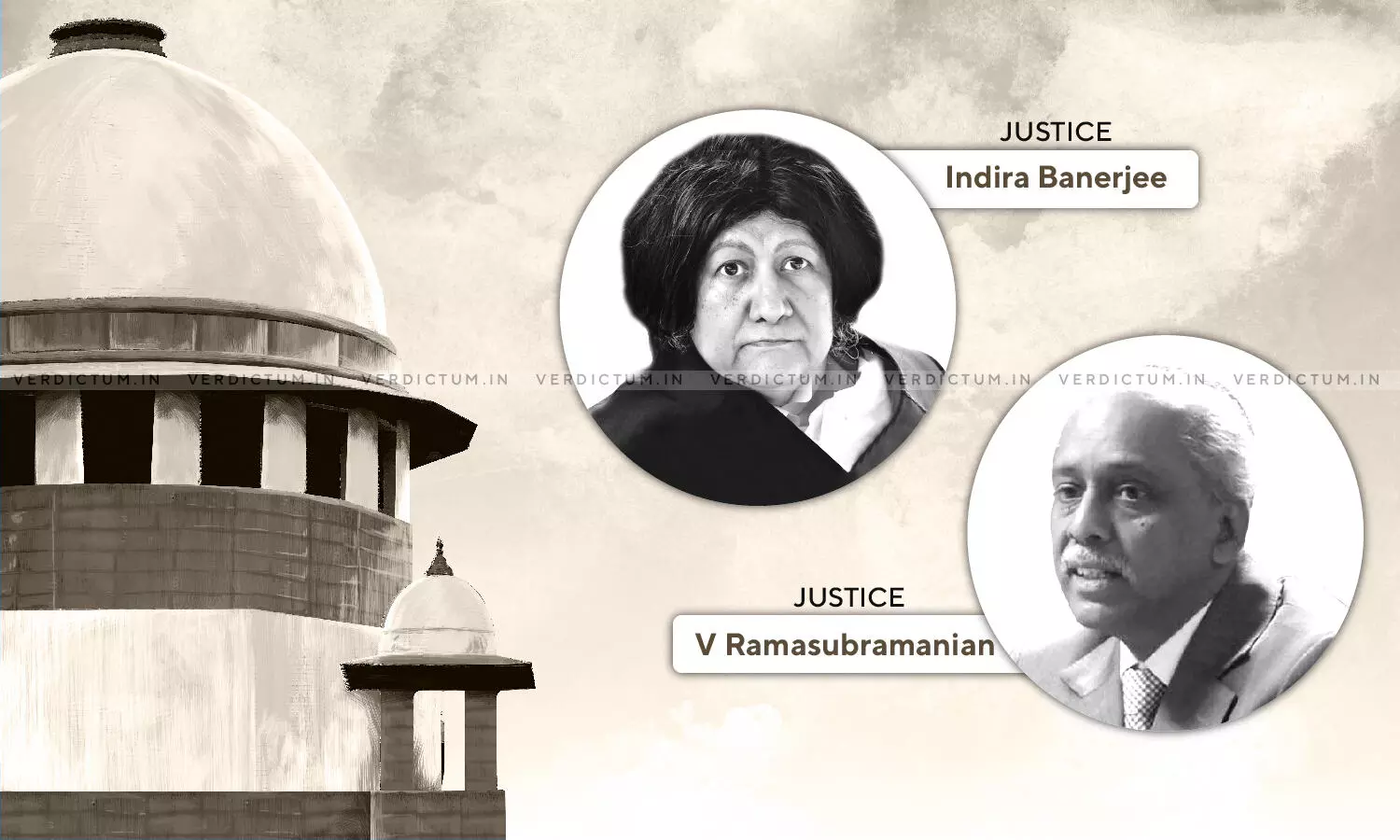
Recovery From Accused Must Be Established First To Raise Presumption U/s. 54 Of NDPS Act: Supreme Court
 |
|The Supreme Court has observed that in order to raise a presumption under Section 54 of the Narcotic Drugs and Psychotropic Substances Act, it must be established that a recovery was made from the accused.
"It is true that Section 54 of the Act raises a presumption and the burden shifts on the accused to explain as to how he came into possession of the contraband. But to raise the presumption under Section 54 of the Act, it must first be established that a recovery was made from the accused.", the Bench of Justice Indira Banerjee and Justice V. Ramasubramanian noted.
The Bench was dealing with an appeal challenging the conviction of accused-appellant under Section 20(b)(ii)(C) of the NDPS Act 1985.
The case of the prosecution was that the appellant-accused and his friend, were carrying ganja in the dickey of a car. It was alleged that upon search, 47 Kgs. of ganja was found kept in three bags in the dickey of the car. The Special Court convicted the appellant-accused for the offence under Section 20(b)(ii)(C) of the Act, and imposed a sentence of 10 years. However, the co-accused was acquitted by the Special Court.
The appeal against conviction was dismissed by the High Court.
Aggrieved accused-appellant approached Supreme Court.
Advocate Somnath Padhan, appeared for the accused-appellant whereas Deputy AG Sourav Roy, appeared for the respondent-State.
Contentions of the appellant-accused
The counsel for the appellant contended that the informant and the Investigating Officer in the instant case happened to be the same person. It was further argued that the independent witnesses did not support the case of the prosecution.
Arguments on behalf of Respondent-State
The state argued that once the procedure enumerated in Sections 42, 43, 49 & 50 of the NDPS Act were scrupulously followed, it was for the accused, from whose possession the substance is recovered, to explain how he came into possession. It was further submitted that once possession is proved under Section 54, the accused is presumed to be guilty of the offence.
Court's Observation and Final Ruling
The Supreme Court observed that the independent witnesses who turned hostile, not only denied having witnessed anything, but also came up with a plausible explanation as to how their signatures found place in the documents mentioned by investigating officer.
The Court noted that the Investigating officer claimed to have done everything only in the presence of independent witnesses however independent witnesses not merely denied their presence and participation but also came up with an explanation as to how their signatures found a place in those documents.
"…a serious doubt is cast on the very search and seizure allegedly made by PW7. But unfortunately, both the Special Court and the High Court went by the law in theory, without applying the same to the facts of the case.", the Court held.
"The moment a doubt is cast upon the most fundamental aspect, namely the search and seizure, the appellant, in our considered opinion will also be entitled to the same benefit as given by the Special Court to the coaccused.", the Court held while setting aside the conviction of the appellant-accused.
Cause Title- Sanjeet Kumar Singh @ Munna Kumar Singh v. State of Chhattisgarh
Click here to read/download the Judgment